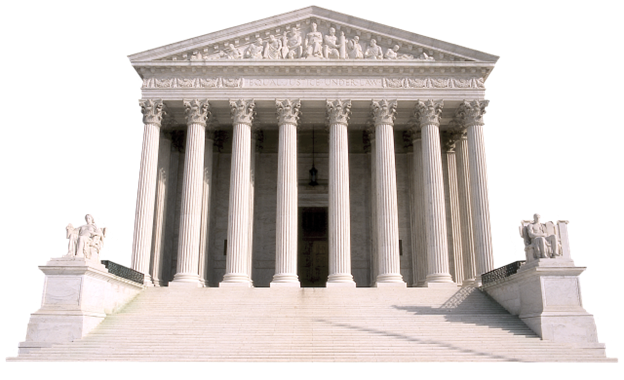In a decision with far-ranging repercussions, the United States Supreme Court has decided that the American President is to receive “absolute immunity from criminal prosecution for actions within his conclusive and preclusive constitutional authority.”
For much of the left, their analysis of this opinion stops here. According to President Biden, “[w]ith [this] decision on presidential immunity…for all practical purposes…there are virtually no limits on what a president can do. This is a fundamentally new principle, and it’s a dangerous precedent because the power of the office will no longer be constrained by the law, even including the Supreme Court of the United States. The only limits will be self-imposed by the president alone.”
Then there is the view of Thomas Wolf, the Director of Democracy Initiatives; “In a shocking and lawless opinion, the Supreme Court granted presidents broad protections from criminal prosecution for ‘official acts’ they undertake while in office. This ruling from the Court’s conservative supermajority pulls a new constitutional rule from thin air. And it raises daunting, unjustifiable barriers to criminally prosecuting lawbreaking presidents. Trump is now positioned to renew his push to dismiss the charges against him and evade accountability for the grave crimes he’s accused of committing against our democracy. The Court has left the rule of law in tatters — even as it looks the other way.”
Even Justice Sotomayor believes this decision to be dangerous. In her dissent, the “wise Latina” wrote “[t]he President of the United States is the most powerful person in the country, and possibly the world. When he uses his official powers in any way, under the majority’s reasoning, he now will be insulated from criminal prosecution. Orders the Navy’s Seal Team 6 to assassinate a political rival? Immune. Organizes a military coup to hold onto power? Immune. Takes a bribe in exchange for a pardon? Immune. Immune, immune, immune.”
Strong words. But is this an accurate analysis of Chief Justice Robert’s opinion in Trump v. United States?
Of course not. While these overwrought statements may constitute dire warnings of potential Presidential misconduct, there is plenty of guidance provided in the majority opinion for future criminal prosecutions of the President of the United States were he to act in such an illegal fashion.
Chief Justice Roberts sets up a three tiered analysis of Presidential claims of immunity. The first tier consist of acts that involve the President’s “core constitutional powers” for which “immunity must be absolute.”
“Article II of the Constitution vests ‘executive Power’ in ‘a President of the United States of America, ‘” Chief Justice Roberts writes. “The President has duties of ‘unrivaled gravity and breadth’…[when] the President exercises such authority, Congress cannot act on, and courts cannot examine, the President’s actions. It follows that an Act of Congress – either a specific one targeted at the President or a generally applicable one – may not criminalize the President’s actions within his exclusive constitutional power. Neither may the courts adjudicate a criminal prosecution that examines such Presidential actions. The Court thus concludes that the President is absolutely immune from criminal prosecution for conduct within his exclusive sphere of constitutional authority.”
What exercise of power does Chief Justice Roberts contemplate as being covered under this form of immunity? The Court uses an example from Jack Smith’s “January 6” prosecution in Washington DC federal district court (the case under consideration by the Supreme Court); “The indictment alleges that…Trump met with the Acting Attorney General and other senior Justice Department and White House officials to discuss investigating purported election fraud and sending a letter from the Department to those States regarding such fraud. The indictment further alleges that after the Acting Attorney General resisted Trump’s requests, Trump repeatedly threatened to replace him.”
“The[se] allegations… plainly implicate Trump’s ‘conclusive and preclusive’ authority,'” the Chief Justice writes. “The Executive Branch has ‘exclusive authority and absolute discretion’ to decide which crimes to investigate and prosecute, including with respect to allegations of election crime.” Further, “the President’s ‘management of the Executive Branch’ requires him to have ‘unrestricted power to remove the most important of his subordinates’ – such as the Attorney General – ‘in their most important duties.’”
“The indictment’s allegations that the requested investigations were shams or proposed for an improper purpose do not divest the President of exclusive authority over the investigative and prosecutorial functions of the Justice Department and its officials,” the opinion states. On this basis, “the President cannot be prosecuted for conduct within his exclusive constitutional authority, Trump is absolutely immune from prosecution for the alleged conduct involving his discussions with Justice Department officials.”
Judge John Wilson’s (ret.) article concludes tomorrow
Illustration: Pixabay
